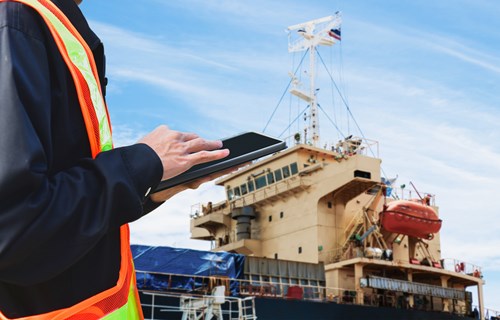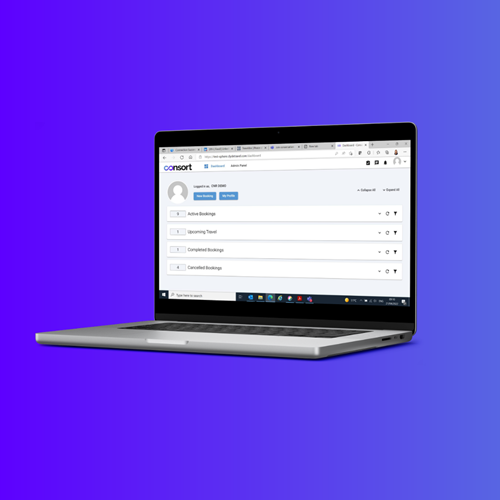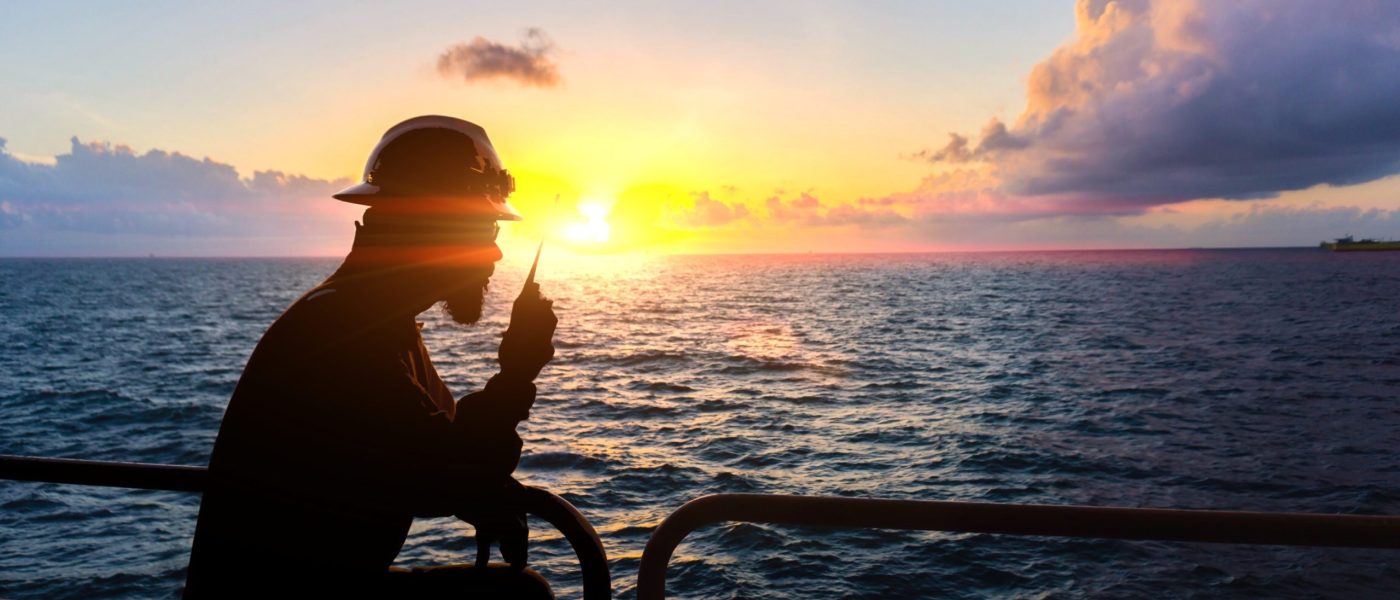The depth of technology’s penetration into our daily lives, while perhaps no longer surprising to most of us, is nevertheless still remarkable.
In a world where paying for goods by cash is becoming a thing of the past and streaming services dominate the world of entertainment, technology is playing an enormously active part in consumer behavior and in all our futures.
Artificial Intelligence (AI) has gone from being the stuff of science fiction and fantasy to an almost daily fixture of the news agenda.
Within corporate travel and, specifically, the Energy, Resource & Marine (ERM) sector, the picture is no different. Indeed, as industries which, by necessity, have always been heavily reliant on deploying technology and anticipating future trends, there is strong evidence that its use is becoming ever more important.
In our latest blog, we look at how technology has already transformed the ERM sector, examine some of the latest travel technology trends and ask what opportunities lie ahead in the drive to deliver a seamless travel experience.
Transforming travel technology in ERM
ERM’s integral role in powering the global economy means that new technologies are already having a major impact in areas such as smart shipping, use of sensors, robotics and autonomous control.
In addition, given the impact of the travel and tourism industry on the planet in terms of carbon emissions, it has recognised the importance of developing new techniques and technologies that can lessen and mitigate that impact.
And, of course, travel technology has already proved to be transformative when it comes to the maritime sector and travel bookings, driving it forward in areas such as planning trips and the customer booking process for flights, hotel rooms and transport.
A prime example of the value which technology can bring to the sector is Clyde Travel Management’s Consort ™ software which accelerates the process of making a travel booking.
Our system provides all those involved in crew deployment full visibility of live and historical crew data. More on that later….

Technology track record
Advances in travel technology have historically been hugely important for the maritime industry – the introduction of radar, for example, was a game-changer in improving navigation and communication systems and, crucially, in enhancing the safety of seafarers and mitigating the impact of severe weather and poor visibility.
The latter has become ever more vital as the marine sector’s role as a key driver of the global economy has expanded, with the necessity to ensure the security and wellbeing of crew members, particularly during the crew change process.
In seeking to sustain and enhance the health of that world economy, however, the ERM sector has, like organisations across the business landscape, had to pay much closer attention, not just to travel trends, but also to the impact which its activities are having on the planet.
Sustainability is a major issue and one which the travel industry has already done much to address while recognising that much remains to be done.
Technology has a pivotal role to play in this regard, helping the shipping sector to lower emissions by cutting its over-reliance on fossil fuels, adopting alternative energy solutions and exploring ways to increase fuel efficiency.

Technology in tandem with expert human support
The use of a technology-driven approach by travel agencies and by Travel Management Companies (TMCs) has undoubtedly played in a key role in transforming the customer experience, not only in terms of delivering a more seamless and efficient journey for the traveler but, for the ERM sectors in particular, enhancing the safety and security of crew members.
At Clyde, our approach to travel bookings allows our customers to benefit from the support of market-leading technology for crew changes and self-booking backed up by data insights, duty of care and invoicing, all of which are mobile-enabled to ensure that you and your team can access information at any time in any location.
The key tool in our travel technology suite for the ERM sector is our crew management software Consort ™.
Increased speed, accuracy & cost control
Clyde’s lengthy experience in the maritime and offshore travel industries mean we recognise the critical need to ensure crew deployment is efficient and cost effective.
Our crew management software assists shipping companies with crew planning, so that crew members, crew managers and agencies have complete visibility of the status of each crew rotation through to completion.
Our travel tech places logistics officers, crewing managers and even crew in the same environment as your travel consultant, ensuring that complex crew mobilisations can be organised, confirmed, changed or cancelled via one system.
Another key benefit is that it accelerates the process of making a travel booking while also giving all those involved in crew deployment full visibility of live and historical crew data.
Our clients have peace of mind that crew members will arrive safely in the right place at the right time, with support from our expert team to handle any schedule changes or queries.
For approvals, alerts are created when quotes are ready and can be approved within the system, speeding up the booking process, with the ability to monitor the status of a request.
As trusted partners of marine and offshore operators, we know that crew changes can often be subject to multiple changes or even cancellation.
Profile management
Profile management is also an essential feature, with crew profiles easily stored with seaman book details automatically populated for each crew member.
Operators can access customised data capture and approvals according to the company requirements, which helps to control costs and manage the fleet effectively.
Cloud-based software Powered by expert travel consultants
Consort ™ makes it easy to request the necessary assistance to make those changes or cancel and refund flights, giving crewing managers and logistics officers time to make alternative plans while also providing visibility and reassurance to all concerned.
And while travel technology has its place, feedback from our clients tells us how much they continue to value the personal touch.
Human interaction remains a key element – Consort ™ was created a collaborative project with our customers to provide workflow efficiencies supported by our team of travel experts who are on hand 24/7 to ensure clients have everything they need.

Challenges and opportunities in travel technology
Technology comes at a price and the cost is not simply a matter of financial investment.
Cybercrime is now the biggest fraud threat facing most businesses, according to PwC’s Global Economic Crime and Fraud Survey 2022, which sought the views of 1,300 executives in more than 50 countries.
The increasing scale and sophistication of cyber attacks and the threat they present to all business sectors which rely on technology means that awareness, vigilance and investment in online security are essential.
Travel management companies and the travel and tourism industry in general have a key role to play in ensuring that client awareness of cyber criminal activity remains high.
Equally, organisations will also have their individual business decisions to make about investment in technology and the need to balance that with other business budgetary demands.
Our clients value the peace of mind they derive from working with a trusted travel management partner with the tech tools to meet their needs.
High quality support
Technology is now such an integral part of our personal and business lives that it’s almost impossible to imagine how we functioned without it.
For the world of business travel and for the ERM sectors in particular, technology has been hugely significant in enhancing the travel experience and all the indications are that will continue.
By its very nature, the tech sector is subject to constant change, renewal and reinvention but by working with a trusted travel partner, maritime and energy operators will reap the benefits of high quality technology support.



